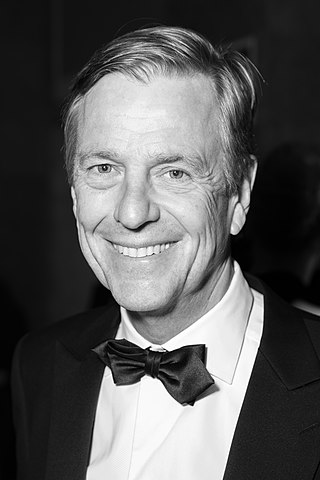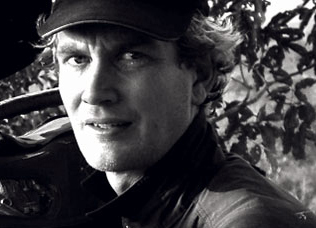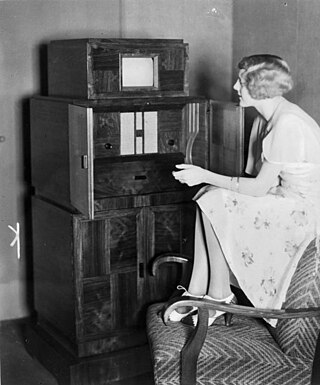
ARD is a joint organisation of Germany's regional public-service broadcasters. It was founded in 1950 in West Germany to represent the common interests of the new, decentralised, post-war broadcasting services – in particular the introduction of a joint television network.
Das Erste is the flagship national television channel of the ARD association of public broadcasting corporations in Germany. Das Erste is jointly operated by the nine regional public broadcasting corporations that are members of the ARD.

Norddeutscher Rundfunk is a public radio and television broadcaster, based in Hamburg. In addition to the city-state of Hamburg, NDR broadcasts for the German states of Lower Saxony, Mecklenburg-Vorpommern and Schleswig-Holstein. NDR is a member of the ARD organisation.

Rundfunk Berlin-Brandenburg is an institution under public law for the German states of Berlin and Brandenburg, based in Berlin and Potsdam. RBB was established on 1 May 2003 through the merger of Sender Freies Berlin (SFB) and Ostdeutscher Rundfunk Brandenburg (ORB), based in Potsdam, and is a member of the Association of PSBs in the Federal Republic of Germany (ARD).

Sender Freies Berlin was the ARD public radio and television service for West Berlin from 1 June 1954 until 1990 and for Berlin as a whole from German reunification until 30 April 2003. On 1 May 2003 it merged with Ostdeutscher Rundfunk Brandenburg to form Rundfunk Berlin-Brandenburg.

Ostdeutscher Rundfunk Brandenburg, based in Potsdam, was the public broadcaster for the German federal state of Brandenburg from 12 October 1991 until 30 April 2003. It was a member organization of the consortium of public-law broadcasting organizations in Germany, ARD.
The Felix-Rexhausen Award were created 1998 by the Bund Lesbischer und Schwuler JournalistInnen to recognize and honor the mainstream media for their fair, accurate and inclusive representations of the LGBT community and the issues that affect their lives.
Bayerischer Fernsehpreis is an award presented by the government of Bavaria, Germany since 1989. The prize symbol is the "Blue Panther", a figure from the Nymphenburg Porcelain Manufactory. The prize money is €10,000.

Claus-Detlev Walter Kleber is a German journalist and former lawyer. He anchored heute-journal, an evening news program on ZDF, one of Germany's two major public TV stations. He is also known for his expertise in United States politics and German-American relations, as evidenced by his 2005 bestseller Amerikas Kreuzzüge.

Christian Baumeister is a German cinematographer and award-winning director focusing on nature and wildlife productions.

The first regular electronic television service in Germany began in Berlin on March 22, 1935, as Deutscher Fernseh Rundfunk. Broadcasting from the Fernsehsender Paul Nipkow, it used a 180-line system, and was on air for 90 minutes, three times a week. Very few receivers were ever privately owned, and viewers went instead to Fernsehstuben. During the 1936 Summer Olympics, broadcasts, up to eight hours a day, took place in Berlin and Hamburg. The Nazis intended to use television as a medium for their propaganda once the number of television sets was increased, but television was able initially to reach only a small number of viewers, in contrast to radio. Despite many technical improvements to camera technology, allowing for higher resolution imaging, by 1939, and the start of World War II, plans for an expansion of television programming were soon changed in favor of radio. The production of the TV receiver E1, that had just started was cancelled because of the war. Nevertheless, the Berlin station, along with one in occupied Paris, remained on the air for most of World War II. A special magazine called Fernsehen und Tonfilm was published.
The Axel-Springer-Preis is an annually awarded prize. The Award is given to young journalists in the categories print, TV, radio, and online journalism due to the decisions of the Axel-Springer-Akademie.
Volker Koepp is a German documentary film producer.

Norbert Busè is a German documentary filmmaker, film producer, and director.
Christoph Krauss is a freelance cinematographer and director of photography for fictional movie and TV-productions, documentaries and art projects.

Anne Zohra Berrached is a German film director and screenwriter.

Anne-Kathrin Peitz is a German documentary screenwriter, director and producer. She primarily works on classical music-related documentaries and television specials.

Bettina Schausten is a German journalist.

Cosima Dannoritzer is a documentary filmmaker and film producer, whose documentaries focus on science, technology, ecology and history. She became known internationally as the screenwriter and film director of the multi-award-winning documentary The Light Bulb Conspiracy, which looks at the history and impact of planned obsolescence.












